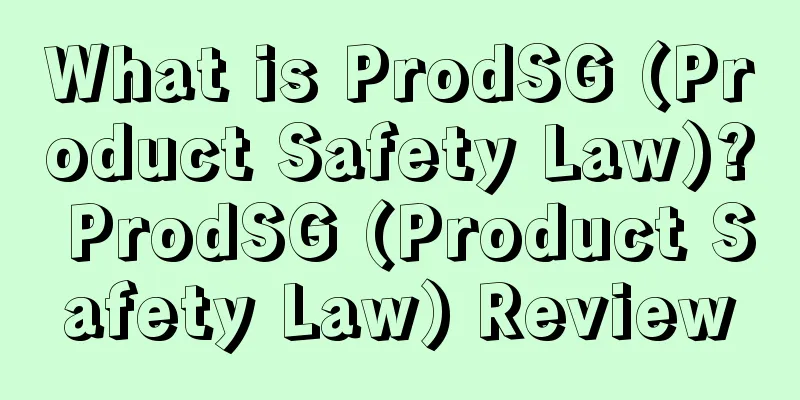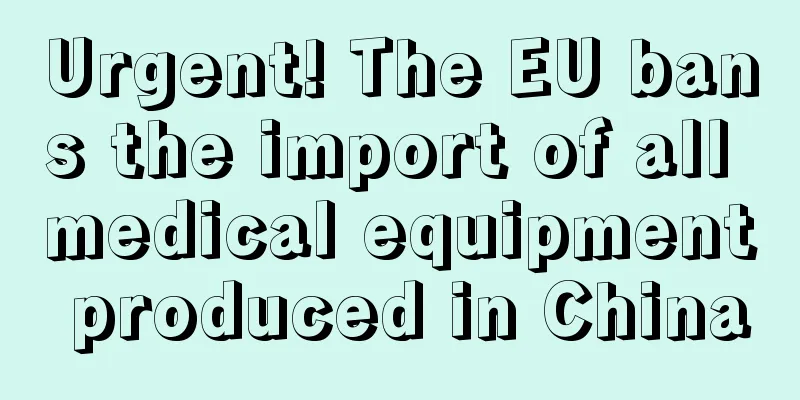What is ProdSG (Product Safety Law)? ProdSG (Product Safety Law) Review

|
ProdSG is a revised version of the Equipment and Product Safety Act (GPSG) promulgated by the German Bundestag on September 23, 2011, which is now the Product Safety Act. The German Bundestag passed the bill and announced it in the Federal Law Gazette on November 11, 2011, and the new Product Safety Act (ProdSG) came into effect on December 1, 2011. About ProdSG The main reason for the introduction of the new regulation ProdSG is to implement the new EU directive EC 765/2008 on the recognition system and market supervision, which was enforced on January 1, 2010. EC 765/2008 Directive stipulates the review and market supervision requirements related to product marketing. In the German Equipment and Product Safety Act, this regulation was in conflict with local laws. Therefore, the German legislature revised the Equipment and Product Safety Act, integrated the regulations related to review and market supervision in the EC 765/2008 Directive, and made a lot of supplements to the original GPSG; in addition, the Product Safety Act also adopted the regulations on terminology and other aspects in the EC 768/2008 Directive. In general, the new regulations have added some new regulations for market entities such as manufacturers, importers, retailers, GS certification agencies and market supervision agencies, and have stricter regulations on penalties for violations of the law. The Product Safety Act applies to almost all products, except for special areas such as medical devices and food. The Act implements many European CE directives into German law. In addition to the areas regulated by the unified directives, the Product Safety Act also provides for products outside the areas regulated by the unified directives, such as parts and accessories used by merchants for reprocessing. Excerpts of the main changes in the new regulations 1. New regulations for manufacturers, importers and retailers (1) Manufacturers, agents and importers of consumer products must fulfill the following obligations within the scope of their business in relation to the consumer products they provide: conduct appropriate product inspections; handle relevant complaints and, where necessary, keep relevant complaint records; and instruct retailers to take further action in relation to the consumer products. (2) Retailers must ensure that only safe products are placed on the market. In particular, retailers must not introduce consumer products on the market based on prior information or experience that is contrary to the requirements. (3) When importing products with the GS mark, importers need to verify whether the products have a valid GS certificate and file the corresponding documents, recording the validity date, GS mark issuing authority and certificate number. 2. New regulations on GS certification agencies The new regulations increase the requirements for GS certification bodies and the transparency of issuing and canceling GS certificates. The law requires all GS certification bodies to publish a list of GS certificates that have been issued (white list) and a list of GS certificates that have been revoked (such as abusing the GS mark) (black list). 3. New requirements for market regulators The new regulations increase the requirements for market regulators. Product inspections need to be completed by authorized GS certification agencies or similar qualified agencies; if manufacturers fail to issue product hazard warnings to customers in a timely manner, market regulators will directly inform the public of the relevant product hazards; the sampling guideline for market regulators is 0.5 samples per 1,000 households. New fines The new regulations have stricter penalties for violations, such as fines for missing German instructions and missing specifications or labels on consumer products, and increased fines to prevent abuse and achieve lasting effects. Violations may result in a fine of 10,000 euros; under certain conditions, if the GS mark is used without a corresponding certificate, the fine will be as high as 100,000 euros. In addition, the penalty provisions will also continue if the GS mark is used or advertised continuously and repeatedly without the corresponding GS certificate. In this case, a fine or imprisonment for one year may be imposed according to the penalty provisions of the legislature. |
<<: What is YTO Express International? YTO Express International Review
>>: What is SatiSupp? SatiSupp Review
Recommend
Seize the $1.05 trillion U.S. e-commerce market! You must know these trends
According to the latest research from eMarketer, a...
Amazon's flash sale rules have been updated again? The running flash sale can no longer adjust the inventory! Backstage control of LD progress is a thing of the past
Anonymous user My C position This year's flash...
What are Instagram Shoppable Posts? Instagram Shoppable Posts Review
Shoppable Posts is an online shopping feature laun...
What is takealot.com? Takealot.com Review
Takealot.com is a leading online retailer in South...
Amazon Europe’s new sites (Sweden, Finland) analysis and store opening guide
In the past 2020, Amazon's European site added...
Buyers of Amazon products are unable to place orders. It turns out that competitors are causing trouble!
In the course of operation, Amazon sellers, in add...
Breaking news! A9 algorithm failed, the new Cosmo algorithm caused most sellers' sales to plummet!!!
Some time ago, everyone was discussing the failure...
Another Walmart seller went bankrupt, he was defrauded of money and his store was closed!
Walmart's e-commerce platform is becoming more...
What is Amazon's advertising quality score? Amazon's advertising quality score evaluation
Amazon's paid advertising ranking mechanism de...
Amazon sellers were forced to pay 56.54 million yuan and owed employees 80 million yuan in compensation
As the former No. 1 cross-border stock, it is diff...
A new phishing scheme has emerged! Be careful with your Amazon account!
Become an Amazon seller Really tired Not only doe...
What is Pinkman Cross-border Services? Pinkman Cross-border Services Review
Pinkman Cross-border Services is composed of a tea...
Primeday event suddenly reported an error? ! Sellers should check and rescue in time
There is less than a week left until Primeday, but...
What is Sima Cross-border? Sima Cross-border Review
Sima Cross-border aims to help Zhongshan's ind...
What is GuestPost Tracker? GuestPost Tracker Review
GuestPost Tracker is essentially a massive databas...









